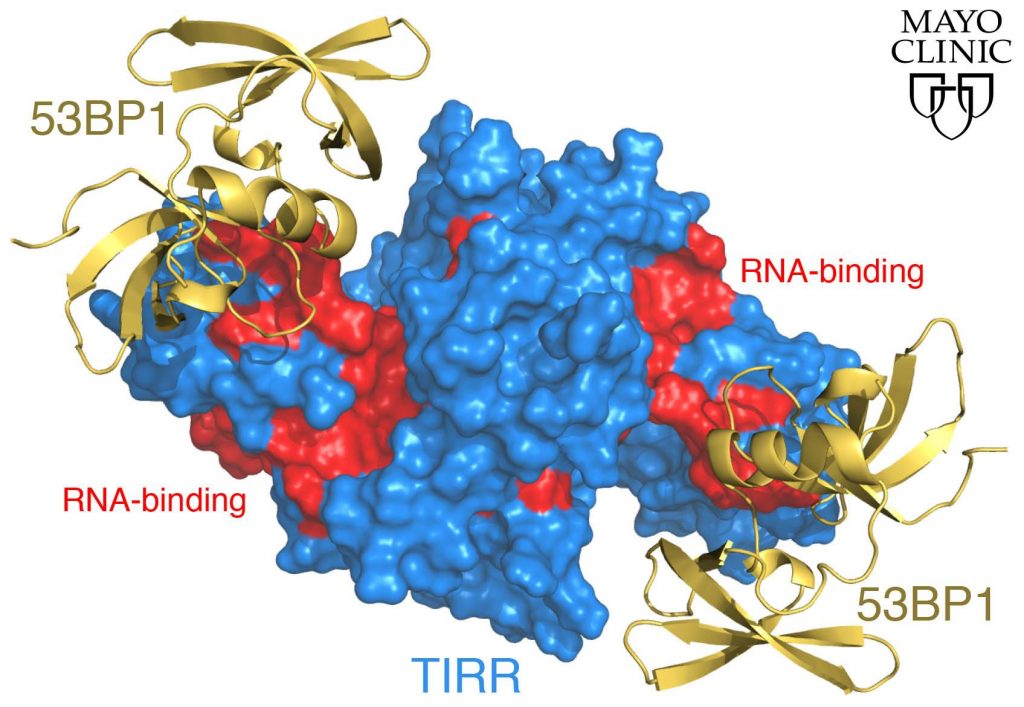-
Featured News
Science Saturday: Research News Roundup-July 2018
The recognition also supports the recruitment of exceptional staff; puts the center at an advantage for obtaining grant funds for research and education; and attracts future medical students, residents and fellows.
Mayo Clinic researchers are using precision genomics to search for undiscovered, inheritable genetic mutations that cause accelerated aging. In a study recently published in Mayo Clinic Proceedings, researchers conducted a study assessing 17 patients with short telomere syndromes — rare conditions that result in premature DNA and cellular deterioration. The ability to pinpoint the genetic abnormalities associated with short telomere syndromes is key to finding better ways to screen, diagnose and treat patients.

Damage to DNA is a daily occurrence but one that human cells have evolved to manage. Now, in a new paper published in Nature Structural & Molecular Biology, Mayo researchers have determined how one DNA repair protein gets to the site of DNA damage. The authors say they hope this discovery research will help identify new therapies for ovarian cancer.
###
Find research feature stories, videos and more news on Discovery's Edge, Mayo Clinic's online research magazine.
Mayo Clinic Radio's 1-minute and in-depth discussions of research and practical patient information can be found online or via your local radio station.
Information about many of the clinical trials available across Mayo Clinic is online as well.
Much of our content is available in Spanish, and we also have news and patient resources in Portuguese, Mandarin Chinese and Arabic.
___________________________________________
Mayo Clinic medical research websites:
- Research at Mayo Clinic
- Discovery’s Edge
- Advancing the Science
- Forefront
- Mayo Clinic Center for Individualized Medicine
- Mayo Clinic Center for Innovation
- Center for Regenerative Medicine
- Center for the Science of Health Care Delivery







